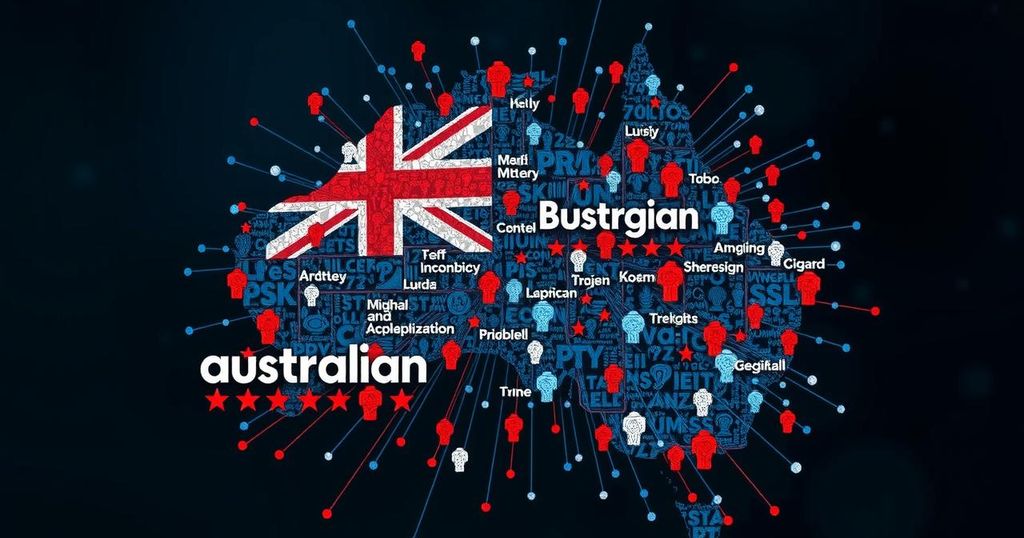Disinformation, particularly through deepfake technology, significantly influenced the recent US election, raising concerns about its potential impact on Australia’s upcoming elections. The ability to discern deepfakes is diminishing, and public awareness is vital to protect democratic processes. Studies reveal that older Australians are particularly vulnerable to misinformation, necessitating proactive measures to enhance detection and media literacy.
In the wake of Donald Trump’s recent re-election, it is crucial to address the role of AI-generated disinformation, particularly deepfake technology, in shaping public perception during political campaigns. Numerous fake videos and images circulated, falsely attributing statements and actions to Vice President Kamala Harris. Dangerous deepfake videos, crafted through artificial intelligence, present fictitious scenarios that appear convincing, posing a substantial risk to democratic discourse. Microsoft highlighted the ongoing dissemination of AI-enhanced deepfakes by foreign entities targeting American politics, a warning that resonates with the impending Australian elections.
The capacity to discern deepfakes is diminishing. Investigations reveal that recognizing false images yields success rates of only 50%, while video detection plummets to 24.5%. As Australia prepares for its electoral cycle, it must remain vigilant against the escalating threat of disinformation, as previously witnessed in the United States. Experts have noted the potential for deepfake videos to distort the public understanding of political figures and policies, fostering distrust and uncertainty in the electoral process.
Australia is already witnessing the implications of deepfake technology, as evidenced by former Home Affairs Minister Clare O’Neil’s warnings about its threat to democracy. Deepfake videos featuring political figures, including Prime Minister Anthony Albanese and Opposition Leader Peter Dutton, were crafted to demonstrate the risks associated with this evolving technology. The ramifications extend beyond political theatre, as exemplified by scammers impersonating Sunshine Coast Mayor Rosanna Natoli during a fraudulent video call.
The challenge posed by deepfakes is compounded by their ability to exploit existing biases and political vulnerabilities. Studies indicate that microtargeting enhances the impact of political disinformation by tailoring it to specific audience segments, potentially skewing democratic processes. Furthermore, older Australians, who may be less adept at identifying deepfakes, face heightened vulnerabilities, particularly in social media environments that reinforce entrenched beliefs.
Given the rapid evolution of AI-generated content, it is imperative to cultivate public awareness and promote media literacy to safeguard democracy against disinformation. The proliferation of deepfake technology is not merely a technical issue; it is a profound threat to the foundations of free and fair elections in Australia, necessitating proactive measures and decisive action.
The proliferation of disinformation, particularly through deepfake technology, has emerged as a significant concern for democratic processes worldwide. Recent electoral events in the United States illustrate the potential dangers posed by AI-generated content, as exemplified by manipulated audio, video, and images utilized to skew public opinion. With the advent of artificial intelligence that can convincingly fabricate scenarios involving real people, the potential for misinformation to disrupt electoral integrity has never been more critical. Australia, poised for its own elections, must acknowledge these threats to safeguard its democratic institutions.
In conclusion, deepfake technology poses a formidable challenge to the integrity of democratic processes in Australia. As the nation anticipates its upcoming elections, it must remain cognizant of the risks associated with AI-generated disinformation, which threatens to distort public perception and undermine trust in political discourse. Proactive measures to enhance public awareness and detection capabilities are essential in mitigating the impact of this evolving technology, thereby ensuring the principles of free and fair elections are upheld.
Original Source: theconversation.com






